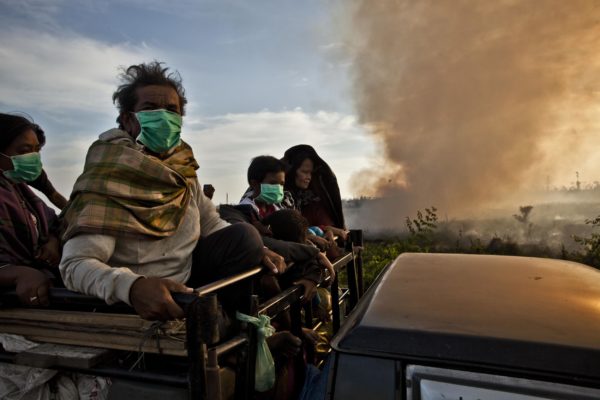Unearthed today: Palm blocked at the border

Morning. Before we get to the science and policy climate… here’s the latest excellent read about the science and policy of the pandemic.
I’m reading about… the food supply.
And the impact on the environment. There has always been a focus on destruction linked to food and consumer goods.
Palm oil was, for a long time, the poster child of that linked in the minds of much of the public with deforestation, air pollution, the destruction of habitats for key species and – crucially – serious labour rights abuses.
And palm is still a thing. Bloomberg reports today that the US (of all people) has blocked imports of palm oil and palm oil products from Malaysia’s FGV Holdings Bhd., one of the world’s largest producers.
“Shipments from the company and its subsidiaries will be held back at all ports of entry effective Wednesday, the US Customs and Border Protection said in a statement. The order is based on what American authorities say is information that “reasonably indicates” the use of forced labour.”
The investigation sounds frankly horrific revealing abuses of “vulnerability, deception, restriction of movement, isolation, intimidation and physical and sexual violence”.
The current buyers of FGV’s products are so far unreported – but they are likely to include many household names. Companies who will have to evaluate if they can continue to do so – including outside of the US blockade.
But in 2020, just as the destruction we focus on linked to food is no longer isolated to the impact on charismatic animals, it is also no longer just about Palm.
Soy meat and dairy are now – rightly – just as tightly at the centre of the debate and news reporting along with an acceptance that it is less the ethical or unethical sourcing of these products that matters – and more how much of them is used full stop.
These are industries that have grown wise to servicing relatively niche markets with ‘ethical’ produce whilst dumping the rest elsewhere. They grow – so long as we buy.
The easy steps are already happening. Marks and Spencer, a high margin UK supermarket brand announced UK retailer Marks & Spencer has eliminated soya from the production of all its milk as part of its commitment to end deforestation in its supply chain.
“Our absolute priority is to eliminate deforestation from the production of our products and to get there, we’re looking at both reducing our reliance on soya and finding more responsible ways of sourcing it. We’re proud of the team’s hard work to move 100% of the animal feed in our milk supply chain to high-performing soya alternatives.”
Obviously, if countries and companies reduce their dependence on global commodities, they need to look again at both the impact that has on development in the countries dependent on those exports – and domestic agriculture.
Over on Channel Four (UK) Alex Thomson looks at what a new, sustainable, future would look like in the UK.
Five things you need to know
Shell to cut up to 9,000 jobs in low-carbon transition: Comes as the Guardian carries an important comment piece on the subject “Many fossil fuel workers like me want to transition to renewables – but we need support”.
France’s Total hikes renewables spending, eyeing big power growth
The UK Plans to Create Offshore Grid to Connect Wind Farms
Wildfire smoke slashes solar energy production in California
Public love for nature during Covid-19 highlighted by a new survey

